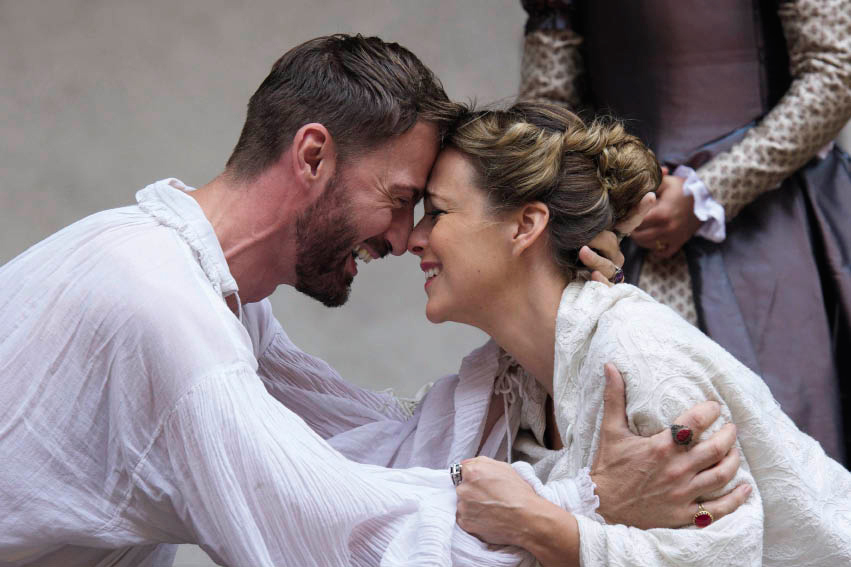Kafka, I was informed at school, was a genius. Now that I’ve grown up a bit I can see that my teachers were being typically overgenerous in their estimate of moderate abilities. Kafka was a cartoonist. He’s the Magritte of literature. His outlandish surrealism is so potent that it has succeeded in occupying the imaginations of people who’ve never encountered the work in person. Much of his mystique rests on his name. If he were called King, not Kafka, and Stephen, not Franz, he’d attract far less pious adulation. But he’s all right, Kafka, if you fancy an hour or two of Tremulous Significance.
His short story, In the Penal Colony, has been regularly adapted for the stage and at the Young Vic a Palestinian troupe, ShiberHur, is having a crack at it. The tale has three beats. One: a deranged torturer bleeds prisoners to death with a device that engraves the name of their offence on their flesh. Two: the device is in need of repairs which the new governor won’t stump up for. Three: the torturer realises his beloved box of tricks is heading for the scrapyard so he submits to its severities and expires with the phrase ‘Keep The Faith’ carved on his body. (It’s a pity Spike Milligan never got his hands on this stuff. He’d have turned it into a comedy classic.)
In ShiberHur’s version the atmosphere is overly reverential and the pace sluggish. Certain gestures are particularly cumbersome. When a prisoner escapes he runs around the stage, honking. Strapped into the tattoo-box he bleeds yellow blood, presumably to match the sunflowers growing nearby. But the Arabic language, with its roughness and its velvet, is peculiarly well suited to the story’s harsh rhetoric.
The show surpasses its shortcomings and manages to linger, oddly, in the memory. Kafka always has that power. The point he’s making, I suppose, is that a bureaucracy can become a religion even if, and perhaps especially if, it develops urges that are destructive and inhuman. Mind you, we don’t need messengers from Palestine to tell us that. We’re in the EU.
The Globe has revived Howard Brenton’s 2010 play about Anne Boleyn’s marriage to Henry VIII. Historical dramatists often try to use their sensibilities to uncover the past and end up using the past to uncover their sensibilities.
Brenton’s take on the Tudor court feels like a 1970s feminist rant. The womenfolk are virtuous sex slaves in nice clingy outfits. The men are heartless ravishers with the power of life or death over their victims. It’s the Bunny Club with a chopping-block in Hef’s office. Anne is a classic Women’s Libber. Innocent, noble-minded, sexually oppressed but damn tough, too. Born intelligent, but deprived of an education, she’s making up for it by doing an Open University degree. In Tudor times the OU took the form of secret meetings with banished scholars. Miranda Raison plays Anne as pert, angelic and winsome. There’s not much else. A bit of grit might have helped.
Brenton’s Henry VIII is another thesaurus of clichés, this time from Hollywood. The king is a rutting, strutting megalomaniac trustafarian with a lot of fancy capes. Anthony Howell plays the platitudes to the hilt. He stands centre stage, legs apart, hands on hips. ‘Humph!’ erupts from his lascivious mouth. He juts out his chin, he tosses back his head. ‘Mua ha ha ha.’ Then he rushes off to hunt a deer or rape a subject. Later he comes back, stands centre stage, legs apart, hands on hips. ‘Humph! Mua ha ha.’
The crux of the drama, the break with Rome, is dramatised as follows. Henry, a priapic dimwit, receives a lesson in Protestant theology from a leading Bible expert, Anne, which draws on her scholarly examination of a suppressed tract by William Tyndale. This triggers the English reformation. No Anne, the play argues, no Anglicanism. Apparently she built Hampton Court Palace as well.
The script’s odd structure flips between the late Tudors and the early Stuarts, and offers us a glimpse of James I in 1603. Although more original than Brenton’s other characters, James still owes nothing to history and everything to now. Striding about in embroidered rompers, he’s a preening out-of-the-closet Glaswegian sex-athlete with a heavy stammer, severe epilepsy and a tongue that pops in and out like a cuckoo clock. James Garnon gathers these strange disparities into a magnificent whole and gives a performance of genuine power and eccentric charm. An amazing turn.
Every element in John Dove’s production is touched by warmth and good cheer. This is far from being a great play but very close to being a great show. I watched in monsoon conditions and the entire audience — sopping Aussies and bemused Japanese included — stayed to wring out their baseball caps during the curtain call.







Comments